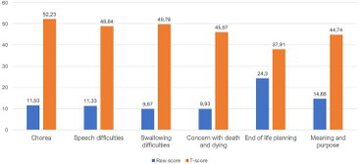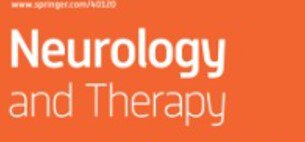Pérez J, García S, Valle TF, Painous C, Querol MR, Ruiz PJG, Diago EB, Cubo E, Pastor BV, Villaplana MCP, Santana IM, Blázquez M, Garride MC, Mir P, Álvarez C, Maurino J, de Prado A, López-Sendón JL. Huntington Disease Health Related Quality of Life, Function and Well Being: The Patient's Perspective
Neurol Ther. 2024
"The Huntington's disease patient experience reveals the profound impact of symptoms and stigma on their quality of life."- Dr José Luis López-Sendón
Summary:
Background: Limited information is available on patients' experience living with Huntington's disease (HD). The primary objective of this study was to assess the health-related quality of life and well being of patients with HD.
Methods: A non-interventional, cross-sectional study was conducted in 17 hospitals-based movement disorders units in Spain. Patients aged ≥ 18 years, genetically HD diagnosed [with a diagnostic confidence level score of 4, and an Independence Scale (IS) score ≥ 70] were included. The primary variables were the Huntington's Disease Health-related Quality of Life (HDQLIFE) scores and results of the Satisfaction with Life Scale (SWLS). Secondary outcomes include the Unified HD Rating Scale (UHDRS), Beck Hopelessness Scale (BHS), Stigma Scale for Chronic Illness (SSCI-8), Beck Depression Inventory-Fast Screen (BDI-FS) and Problem Behaviours Assessment for HD short Version (PBA-S).
Results: A total of 102 patients were included. The mean age (SD) was 53.1 (12.1) years and 56% were male. Most of the patients (99.0%) showed motor symptoms (87.3%), behavioural and psychiatric disturbances (59.8%), or cognitive impairment (20.6%). HDQLIFE domain score means (SD) includes concern with death and dying 45.97 (9.60) end-of-life planning 37.91 (8.84), and meaning and purpose 44.74 (9.05). SWLS score mean was 24.25 (7.33). Depressive symptoms were found in 37.4% of patients and moderate-to-severe feelings of hopelessness in 32.9%. The prevalence of stigma was 55.9% (n = 57).
Conclusion: HD impacted quality of life, with prevalent motor, psychiatric symptoms and cognitive impairment. Patient perspectives may provide complementary information to implement specific interventions.
Why do you highlight this publication?
This publication presents the patient's perspective on Huntington's disease, showing how motor, psychiatric, and cognitive symptoms intertwine with depression, hopelessness, and stigma to profoundly affect quality of life, providing essential information for designing truly patient-centered interventions.
Publication commented by:
Dr. José Luis López-Sendón Moreno
Neurology Department
Associated Clinical Research Staff of IRYCIS



